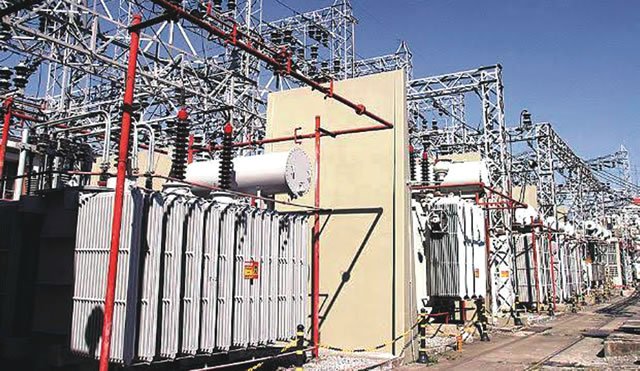In this report, Gom Mirian explores the implications of the ongoing energy crisis, the disconnect between promises and reality, and the potential consequences for the upcoming elections.
Reliable Electricity
In a nation where reliable electricity is essential for development and poverty alleviation, the incessant collapse of Nigeria’s national grid has become a pressing concern under President Bola Ahmed Tinubu’s administration.
Despite his campaign promises to provide stable electricity and eliminate estimated billing practices, Nigerians continue to grapple with an unreliable power supply, leading many to question the feasibility of his re-election.
Nigeria, endowed with abundant natural resources, has struggled to maintain a stable electricity supply for decades. Historical challenges, including inadequate infrastructure, corruption, and mismanagement, have plagued the power sector. The 2023 elections brought renewed hope, with Tinubu pledging to revolutionise electricity access, eradicate estimated billing, and transform the energy landscape. However, the reality has proven starkly different, with persistent grid collapses hindering progress and stalling development.
Tinubu’s Promises
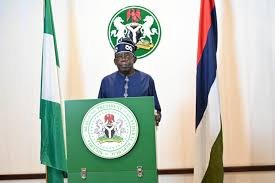
During his campaign, Tinubu positioned himself as a transformative leader ready to tackle Nigeria’s long- standing power issues.
He stressed the importance of reliable electricity for economic growth, job creation, and improved living standards. “Whichever way, by all means necessary, you must have electricity and you will not pay for the estimated bill anymore. A promise made will be a promise kept,” he asserted confidently during rallies.
Moreover, he was unequivocal about the consequences of failure. “If I won’t keep the promise and I come back for a second term, don’t vote for me. That’s the truth. Unless I give adequate reasons why I couldn’t deliver,” he declared, setting a high bar for accountability.
These commitments resonated with voters, raising expectations for a brighter future. However, the reality has proven to be a disheartening contrast.
Current Situation
Since Tinubu took office, the frequency of grid collapses has surged, leading to nationwide blackouts that affect homes, businesses, and essential services.
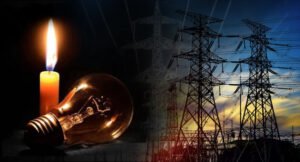
Minister of Power Adebayo Adelabu noted that Nigeria’s power generation fluctuates between 4,000 and 4,500 megawatts for a population of about 200 million.

In a recent ministerial address, he claimed that power generation had peaked at 5,000 megawatts on May 3, 2024, for the first time in three years.
However, reports from the Transmission Company of Nigeria (TCN) reveal a disheartening reality: in 2024 alone, there were eight grid failures within just 17 months of Tinubu’s administration, with three being recorded within a week.
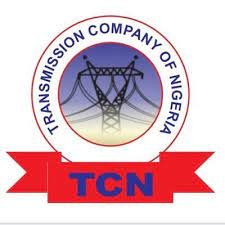
According to Africa Health Report, (AHR) findings as of October 2024, Nigeria was generating a mere 3,042 megawatts of electricity, a far cry from the estimated 30,000 megawatts needed to provide adequate power. On one occasion, the power output peaked at 3,968 megawatts but plummeted to just 47 megawatts shortly thereafter due to a grid collapse, leaving power distribution companies with no allocation.
The National Grid has experienced 105 collapses in the last decade, despite billions of dollars in loans approved for the electricity sector.
In Tinubu’s administration alone, over $1 billion in loans have been secured. For instance, the World Bank approved a $750 million project aimed at expanding access through renewable energy in December 2023, while the African Development Bank pledged $500 million in July 2024 to transform Nigeria’s electricity infrastructure.
The Human Cost
The impact of the electricity crisis extends beyond economic metrics; it deeply affects everyday Nigerians. Yusuf, a small business owner in Kano, expressed his frustration: “We spend more on fuel for our generator than we do on actual goods. It’s not just business; it’s my family’s livelihood. We are barely surviving.” This sentiment resonates across the nation, highlighting the dire situation many families face.
Fatima, a university student, lamented, “My studies suffer every day. The constant outages make it impossible to keep up with my classes. How can we move forward as a nation when we can’t even power our homes?” Her struggles are echoed by many students who rely on electricity for their educational pursuits.

Maryam, a mother of two in Abuja, voiced her discontent, stating, “Imagine how expensive things are now, coupled with the uncertainty of price. To cut costs, I buy in bulk to store food in the refrigerator, but then the power goes out, and everything spoils. It’s so painful. We are tired of living in darkness while paying exorbitant bills. It feels like we were misled.” Her words reflect a broader disenchantment that could have serious implications for Tinubu’s re-election prospects.
Business Community Response
The Director-General of the Lagos Chamber of Commerce and Industry (LCCI), Dr. Chinyere Almona, expressed deep concern over the frequency of grid collapses. “The worsening performance of the national grid is an issue of concern to the business community,” she stated.
Almona noted that after numerous failures, national grid managers should have identified root causes and implemented lasting solutions.

“By now, there should be a clear understanding among power sector stakeholders of what drives these recurring failures and how to prevent them,” she added. Her comments reflect the frustration of many in the business sector who are grappling with the consequences of unreliable power.
The Director General of the Manufacturers Association of Nigeria (MAN), Segun Ajayi-Kadir, highlighted the significant costs associated with production disruptions. “It’s unacceptable that manufacturers have to shut down production lines every time there’s a collapse. The costs to restart those lines are crippling. We are expected to pay 250% of electricity tariffs without factoring in these interruptions,” he lamented.

He noted that a public hearing on the national grid collapse, scheduled by the Nigerian Electricity Regulatory Commission (NERC), could be a vital step toward finding solutions. “The greatest challenge facing Nigeria’s economy currently is insecurity, and if you talk about manufacturing, the second is energy. There is no way manufacturing can thrive without a steady and affordable power supply.”
Government and Regulatory Responses
In light of the ongoing crisis, the Nigerian Electricity Regulatory Commission (NERC) acknowledged the escalating incidence of grid disturbances. “The recent outages are reversing many of the gains we achieved in reducing infrastructure deficits and improving grid stability,” NERC stated, without future actions being provided.
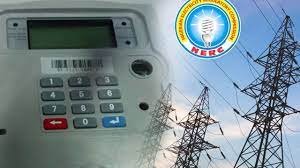
Minister Adelabu, addressing the challenges, pointed out that the solution lies in developing regional power grids. “Different regions need to have their power infrastructure to end the incessant grid collapses,” he stated, reflecting a shift in strategy. However, he also noted the deplorable state of the current infrastructure, which complicates efforts to stabilize power supply.
The root causes of grid failures remain unclear, as the TCN could not be reached for further comments. The repeated outages are expected to exacerbate the strained power situation across the country, affecting both businesses and households.
Economic Implications
The ramifications of the ongoing power crisis extend beyond mere inconvenience; they threaten Nigeria’s economic stability and growth. A large portion of the population relies on informal sectors and small businesses, and the lack of reliable electricity hinders productivity and innovation. Families are forced to divert funds from education, healthcare, and food to pay for diesel and generator maintenance, creating a vicious cycle of poverty.
Ajayi-Kadir warned that the electricity crisis could further cripple struggling companies. “The financial strain on businesses is unsustainable, and without immediate action, many may not survive,” he said, underscoring the urgent need for reform.
Political Implications
As the next election approaches, Tinubu’s administration faces mounting pressure to fulfil its promises regarding electricity. The disconnect between the government’s goals and citizens’ realities has sparked discussions about accountability and governance. Political analysts suggest that failure to resolve the electricity crisis could jeopardize Tinubu’s chances of re-election.
Voter sentiment, heavily influenced by day-to-day experiences, may lead to significant backlash. Many voters, once hopeful for change, now feel betrayed, and this disenchantment could manifest in lower support for Tinubu in the 2027 polls.
Opposition parties are already seizing upon the electricity crisis as a rallying point, criticizing the administration’s inability to deliver on its promises. Campaigns that highlight failures in the power sector could galvanise disaffected voters and reshape the political landscape in the upcoming elections.
The impact of continuous national grid collapses in Nigeria under Tinubu’s administration cannot be understated. As citizens grapple with unreliable electricity and escalating costs, the chasm between promises and reality widens. The ongoing crisis threatens not only the economic well-being of individuals and businesses but also the very fabric of governance and accountability in Nigeria.
As the nation approaches the next election, the stakes are high. Voters are increasingly likely to hold Tinubu accountable for unmet promises regarding stable electricity and the eradication of estimated billing practices. If these issues remain unaddressed, the call for change could resonate powerfully at the ballot box, compelling a reconsideration of leadership in a country desperately seeking reliable solutions for a brighter future.
In a nation where light symbolises hope, the flickering of electricity serves as a poignant reminder of the urgent need for action, reform, and accountability in the quest for a stable and prosperous Nigeria.

